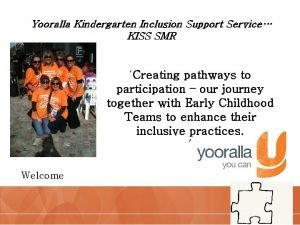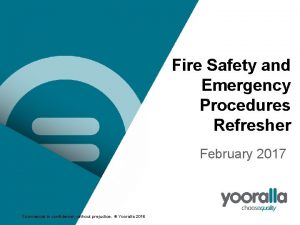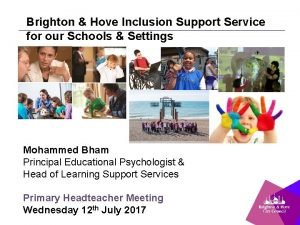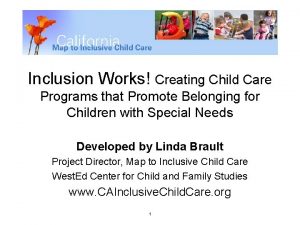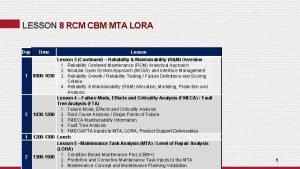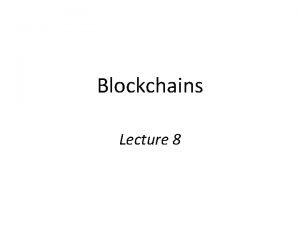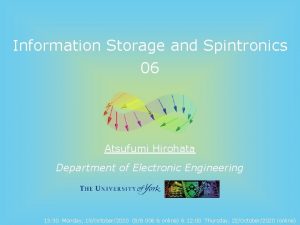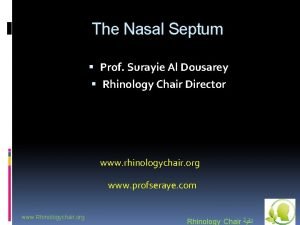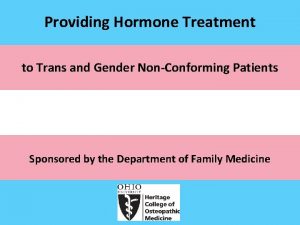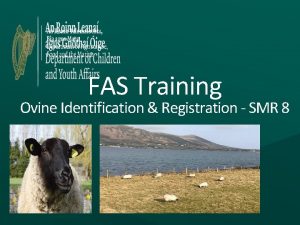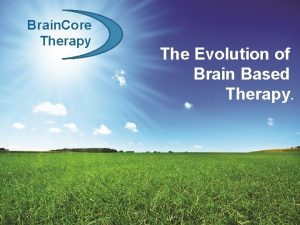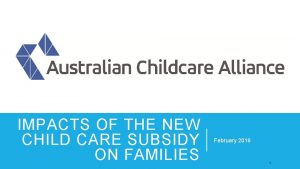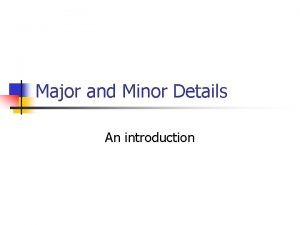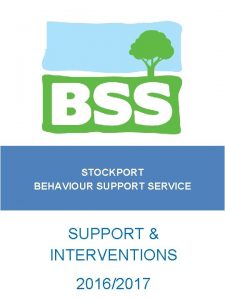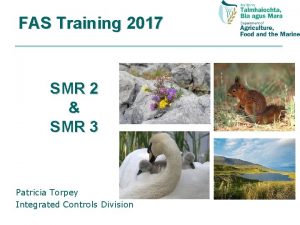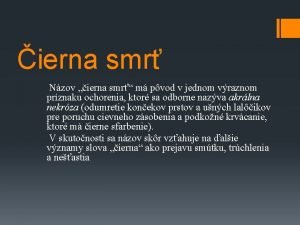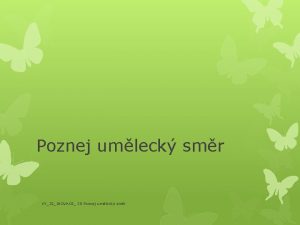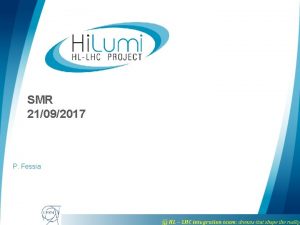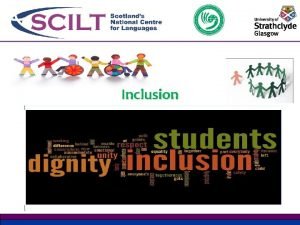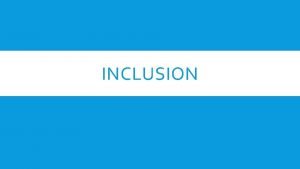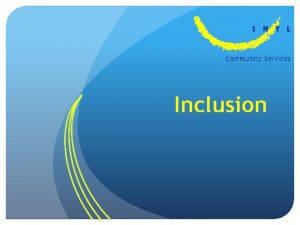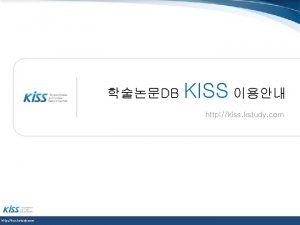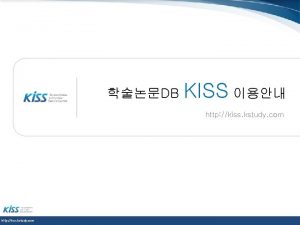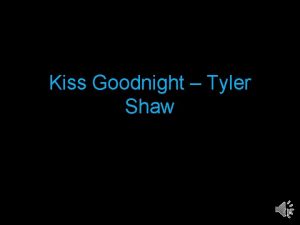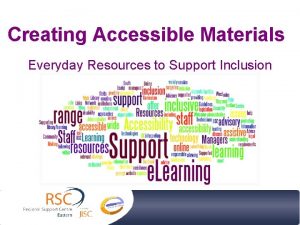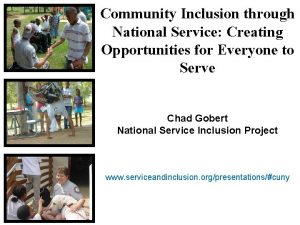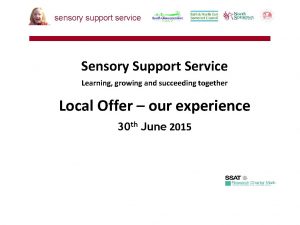Yooralla Kindergarten Inclusion Support Service KISS SMR Creating















- Slides: 15

Yooralla Kindergarten Inclusion Support Service… KISS SMR ‘Creating pathways to participation – our journey together with Early Childhood Teams to enhance their inclusive practices. ’ Welcome

Outline of presentation Outline Introduction • What is the KISS program? • Our roles • Our ‘learning’, the PUZZLE • Background to the support program • Research: enhancing inclusive practices • ‘Educators voice’… “I want…” “I need you to…” • Tiered service delivery model

Yooralla Kindergarten Inclusion Support Service Our Team is: 116 Additional Assistants in 128 Kindergartens supporting 225 children (and growing) www. yooralla. com. au Southern Metropolitan Region

Ww What is KISS? The objective of the KISS Packages- disability is to build the capacity of funded kindergartens to support the access and participation of children with a disability and high support needs in inclusive kindergarten programs. (2013) The resources allocated to the kindergarten program are intended to support the needs of the whole group during the Kindergarten An additional team member –not an integration aide.

Early Childhood Intervention services : been a paradigm shift… “Over the past 20 to 30 years there has from a deficit model of disability to a social model” (Centre Community Health, 2010, p. 16). “ what we need are more supportive communities, better coordinated services, and improved forms of dialogue between communities and services including all levels of government and the future role of specialists” Moore. (2008) p. 11 Social model

Expert to all children The identity of early childhood educators as ‘experts’ for all children (and that includes children with disabilities) challenges previous held beliefs. Question: How do we strengthened universal services and create opportunities to expand the role of specialists (p. 19) How can skills be transferred, early educators skilled up to gain confidence and knowledge? (Moore, (2008) p. 24) Coming ready or not…

Doing it together and learning from each other. ” (Tim Moore)

EYLF: Reflective practices: Early childhood professionals gather information that supports, informs, assesses and enriches decisionmaking about appropriate professional practices (VEYLDF, p. 14). “Child’s Voice” “How can this child succeed in this program? ” … Cheryl “ The potential of Kindergarten”

Respectful relationships The child “Every child needs one person who is crazy about him”… Uri Bronfenbrenner How is the child being viewed in this environment? (by their family, the EC professionals, the community)

“Do young children with disabilities get to play the same way those without disabilities do? ” (Brooker, L, Edwards, S, (2010) p. 183) Strengths and interests of child

Relationships • When do we start building relationships? • What is your role in these relationships? Where do we build our relationships with an EC service? • How do we know we are getting the relationship right? • How do you maintain relationships? • What are the strengths, what are the priorities?

Supporting Inclusive Practices Intensive Intervention Targeted Social & emotional support P. S. G. Role Model Resources & information Feedback High Quality Supportive Environments Nurturing and Responsive relationships Reflective Practices Strengthen our capacity Trust Common language EYLF & VEYLDF

Putting the pieces together


High expectations for every child A child’s voice… “This is for you You are having a rest. You are dreaming of what you are going to do when you grow up You can fly a rocket”
 Kindergarten inclusion support
Kindergarten inclusion support Yooralla intranet
Yooralla intranet Brighton and hove inclusion support service
Brighton and hove inclusion support service Inclusion works creating child care programs
Inclusion works creating child care programs Unit armorer
Unit armorer Rcm cbm
Rcm cbm Tanner ward body
Tanner ward body Byzantine fault tolerant replicated state machine
Byzantine fault tolerant replicated state machine Smr
Smr Smr smd surgery
Smr smd surgery Smr staging
Smr staging Smr 8
Smr 8 Smr brain waves
Smr brain waves Inclusion support subsidy
Inclusion support subsidy Major vs minor details
Major vs minor details Stockport behaviour support service
Stockport behaviour support service
